- ABOUT US
- PROGRAM AREAS
- CONSERVATION APPROACH
- EDUCATION
- MULTIMEDIA
2020 Featured Stories
Dec
Coral Heroes: Rear Admiral Tim Gallaudet

Throughout the Coral Reef Conservation Program’s 20th Anniversary, we are highlighting Coral Heroes — individuals and organizations that have worked with the program and are making a real difference in coral reef conservation.
Nov
A NOAA Strategy for Responding to Stony Coral Tissue Loss Disease
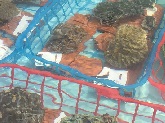
NOAA has released a strategy for the response to Stony Coral Tissue Loss Disease, a disease that is spreading throughout the Atlantic and Caribbean region and poses a threat to the Indo-Pacific region. The high-level strategy provides a framework and focus for efforts to slow the continued spread of the disease across the Atlantic and Caribbean regions,
U.S. Coral Reefs are in Fair Condition but Vulnerable and Declining
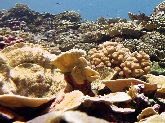
The NOAA Coral Reef Conservation Program released a national status report for coral reefs in the United States, including coral ecosystems in American Samoa, the Commonwealth of the Northern Mariana Islands, Florida, Flower Garden Banks, Guam, Hawaii and the Northwest Hawaiian Islands, the Pacific Remote Islands, Puerto Rico, and the U.S. Virgin Islands.
Coral Heroes: The Stony Coral Tissue Loss Disease Response Team
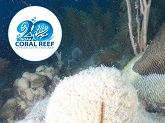
Throughout the Coral Reef Conservation Program’s 20th Anniversary, we are highlighting Coral Heroes — individuals and organizations that have worked with the program and are making a real difference in coral reef conservation.
Oct
More Than $10.5 Million Awarded for Coral Reef Projects and Studies in Fiscal Year 2020
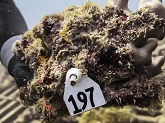
The NOAA Coral Reef Conservation Program has awarded over $10.5 million in grants and cooperative agreements this year to support conservation projects and scientific studies that benefit coral reef ecosystem management in seven U.S. states and territories, and internationally in the Caribbean, the Coral Triangle, the South Pacific, and Micronesia.
Reef Resilience Network Releases Restoration Guide
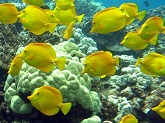
The Manager’s Guide to Coral Reef Restoration Planning and Design supports the needs of reef managers seeking to begin restoration or assess their current restoration program. Based on global best practices—and tested with managers from Hawaii, Guam, American Samoa, and the Commonwealth of the Marianas Islands—the Guide was developed for reef managers and practitioners, and anyone who plans, implements, and monitors restoration activities.
Coral Heroes: The Puerto Rico Department of Natural and Environmental Resources
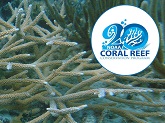
Throughout the Coral Reef Conservation Program’s 20th Anniversary, we are highlighting Coral Heroes — individuals and organizations that have worked with the program and are making a real difference in coral reef conservation.
Sep
Coral Heroes: The Gulf and Caribbean Fisheries Institute
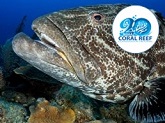
Throughout the Coral Reef Conservation Program’s 20th Anniversary, we are highlighting Coral Heroes — individuals and organizations that have worked with the program and are making a real difference in coral reef conservation.
Hawaii's New Decade of Building Coral Reef Ecosystem Resilience
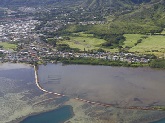
Coral reefs across the Hawaiian Islands have important cultural and economic value. However, land-based sources of pollution, increased sea surface temperatures, macro algae overgrowth, and disease outbreaks all affect coral health.
Aug
Nearly $1 Million in NOAA Funding Recommended for Ruth Gates Coral Restoration Innovation Grants Projects
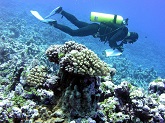
NOAA is recommending nearly $1 million in funding for four projects through the Ruth Gates Coral Restoration Innovation Grants opportunity. The funded projects aim to enhance coral resilience and improve the long-term success and efficiency of shallow-water coral reef restoration in a changing climate.
New research plan sets the course for NOAA’s ocean acidification science
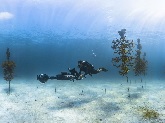
NOAA unveiled its new 10-year research roadmap to help the nation’s scientists, resource managers, and coastal communities address acidification of the open ocean, coasts, and Great Lakes.
Coral Heroes: The International Coral Reef Initiative
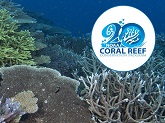
Throughout the Coral Reef Conservation Program’s 20th Anniversary, we are highlighting Coral Heroes — individuals and organizations that have worked with the program and are making a real difference in coral reef conservation.
July
Coral Heroes: The National Fish and Wildlife Foundation
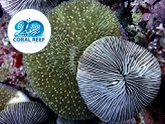
Throughout the Coral Reef Conservation Program’s 20th Anniversary, we are highlighting Coral Heroes — individuals and organizations that have worked with the program and are making a real difference in coral reef conservation.
A New Era of Monitoring the Coral Reef Environment from Space
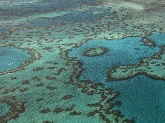
Healthy coral reefs are among the most biologically diverse, culturally significant, and economically valuable ecosystems on Earth. They provide billions of dollars in food, jobs, recreational opportunities, coastal protection, and other important goods and services to people around the world.
June
Cheers to the Coral Triangle
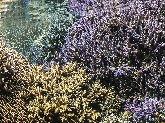
The Coral Triangle is an area in the western Pacific that includes the waters of Indonesia, Malaysia, Papua New Guinea, the Philippines, the Solomon Islands, and Timor-Leste. The Coral Triangle is home to 75 percent (almost 600) of the world’s coral species, over 2,000 species of reef fish, and six out of seven sea turtle species. The region supports multiple marine mammal species, an important tuna nursery and migration area, and over 120 million people.
Coral Heroes: The National Marine Sanctuary Foundation

Throughout the Coral Reef Conservation Program’s 20th Anniversary, we are highlighting Coral Heroes — individuals and organizations that have worked with the program and are making a real difference in coral reef conservation. The conservation of special places and resources like coral reefs involves many different types of groups. Federal agencies, state and territorial agencies, academic institutions, and non-governmental organizations each have distinct strengths that they bring to the table.
May
Looking Out for Hurricanes and Corals
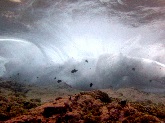
It may seem early, but hurricane season is right around the corner. Hurricane season begins on May 15 in the eastern Pacific Ocean, and on June 1 in the central Pacific and Atlantic Oceans. Hurricanes have become more frequent and stronger, impacting coastal communities and economies.
Coral Reef Health Captured in the Atlantic, Caribbean, and Gulf of Mexico
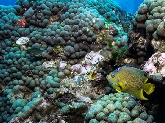
The NOAA Coral Reef Conservation Program has released status reports for coral reefs in the Atlantic and Caribbean U.S. states and territories - Florida, Puerto Rico, and the U.S. Virgin Islands; and Flower Garden Banks in the Gulf of Mexico.
Coral Heroes: The Micronesia Conservation Trust
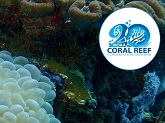
Throughout the Coral Reef Conservation Program’s 20th Anniversary, we are highlighting Coral Heroes — individuals and organizations who have worked with the program and are making a real difference in coral reef conservation.
Apr
Aquariums and Zoos: Caring for Corals from A to Z
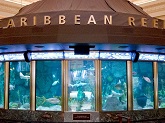
Zoos and aquariums are important partners in coral reef conservation. From education to disease response, these institutions support efforts by organizations like NOAA. Here are some of the ways zoos and aquariums are working with NOAA and the ocean-interested public.
Coral Heroes: The Reef Resilience Network
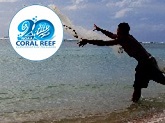
Throughout the Coral Reef Conservation Program’s 20th Anniversary, we are highlighting Coral Heroes — individuals and organizations who have worked with the program and are making a real difference in coral reef conservation.
March
Coral Fellows Take on Local Issues
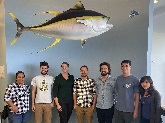
Managing coral reef ecosystems requires more support—and many more hands—than most U.S. jurisdictions can provide with available resources. The National Coral Reef Management Fellowship was created to help fill this need at the local level.
Ridge to Reef in American Samoa

Coral reef conservation is not restricted to the water. Coastal development, deforestation, agricultural runoff, and oil and chemical spills introduce pollution into coral reef ecosystems. Land-based sources of pollution affect coral growth and reproduction, disrupt overall ecosystem function, and lead to disease and death. NOAA uses a “ridge to reef” approach to address this connection.
Coral Heroes: Dr. Ruth Gates
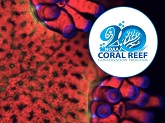
Throughout the Coral Reef Conservation Program’s 20th Anniversary, we are highlighting Coral Heroes — individuals and organizations that have worked with the program and are making a real difference in coral reef conservation.
February
The Year of a Lifetime

Since 1979, graduate and professional school students travel from around the country to the Washington, D.C. area every year for the John A. Knauss Marine Policy Fellowship. The fellowship, administered by NOAA’s National Sea Grant College Program, matches fellows with host offices in the executive and legislative branches of government to learn about ocean, coastal, and Great Lakes resource management and policy. NOAA’s Coral Reef Conservation Program has been fortunate to host many Knauss fellows over the years.
Coral Heroes: FORCE BLUE
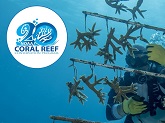
Throughout the Coral Reef Conservation Program’s 20th Anniversary, we are highlighting Coral Heroes — individuals and organizations that have worked with the program and are making a real difference in coral reef conservation.
January
The Coral Reef Conservation Program Celebrates 20 Years
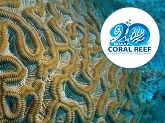
The Coral Reef Conservation Act was signed into law on December 23, 2000, establishing the NOAA Coral Reef Conservation Program. For 20 years, the program has brought together expertise from across NOAA and its partners to protect, conserve, and restore the nation’s coral reef ecosystems.
$500,000 Available for Coral Restoration Projects in Honor of Dr. Ruth Gates
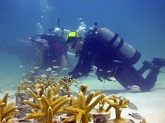
As part of our efforts to restore resilient coral ecosystems, NOAA is announcing the availability of approximately $500,000 in funding for coral restoration in 2020. The competition is in direct response to the recently completed National Academies of Sciences, Engineering, and Medicine study on Interventions to Increase the Resilience of Coral Reefs. This is the first competition under the new Ruth Gates Coral Restoration Innovation Grants.
The Coral Heroes: The Coral Restoration Consortium
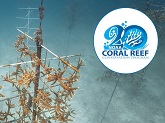
Throughout the Coral Reef Conservation Program’s 20th Anniversary, we are highlighting Coral Heroes — individuals and organizations who have worked with the program and are making a real difference in coral reef conservation.
About Us

The NOAA Coral Reef Conservation Program was established in 2000 by the Coral Reef Conservation Act. Headquartered in Silver Spring, Maryland, the program is part of NOAA's Office for Coastal Management.

The Coral Reef Information System (CoRIS) is the program's information portal that provides access to NOAA coral reef data and products.
Work With US
U.S. Coral Reef Task Force
Funding Opportunities
Employment
Fellowship Program
Contracting Assistance
Graphic Identifier
Featured Stories Archive
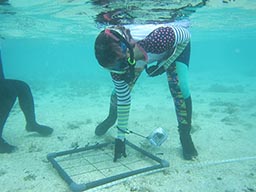
Access the archive of featured stories here...
Feedback
Thank you for visiting NOAA’s Coral Reef Conservation Program online. Please take our website satisfaction survey. We welcome your ideas, comments, and feedback. Questions? Email coralreef@noaa.gov.
Stay Connected
Contact Us
NOAA’s Coral Reef Conservation Program
SSMC4, 10th Floor
1305 East West Highway
Silver Spring, MD 20910
coralreef@noaa.gov
